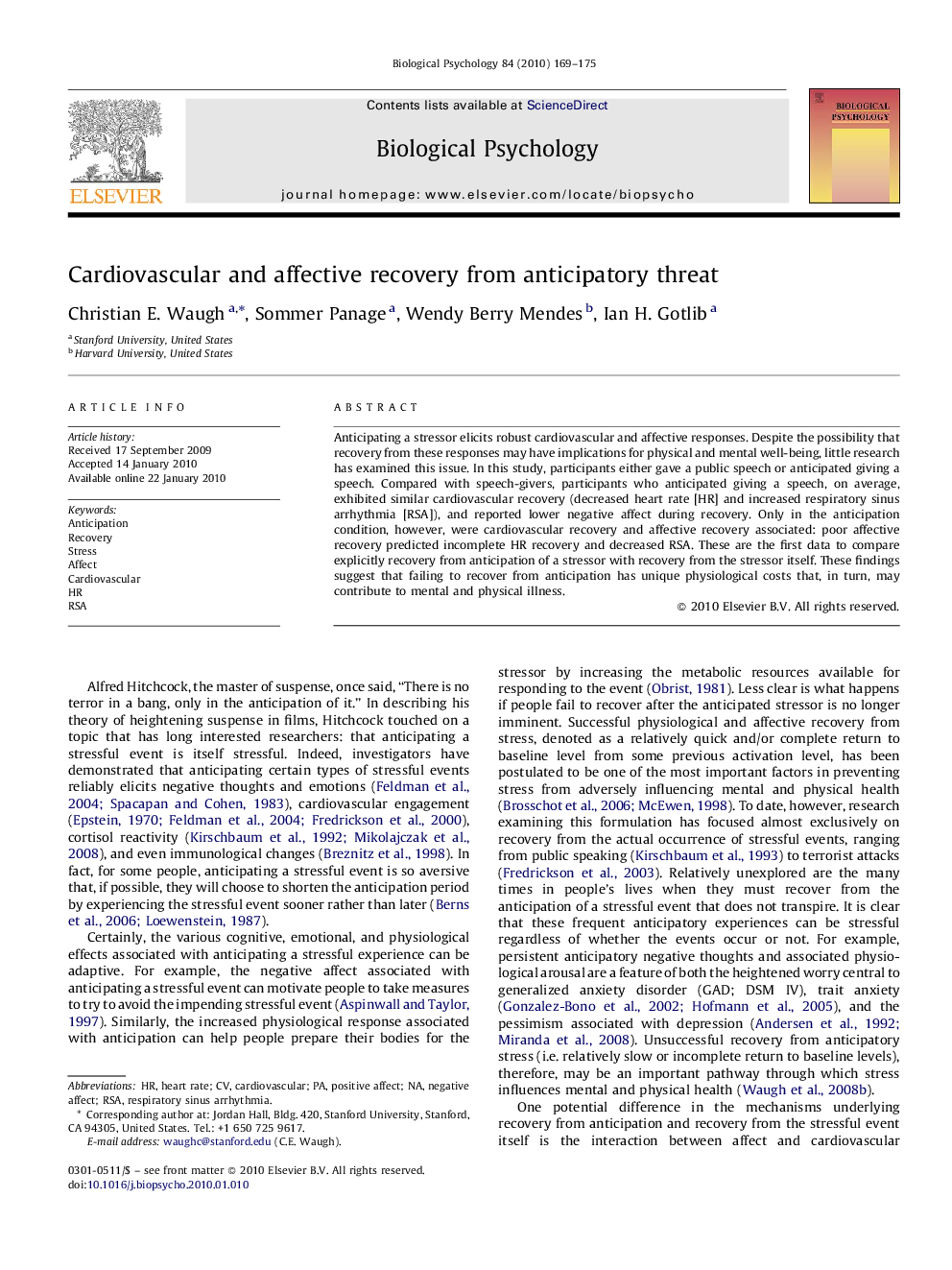| Article ID | Journal | Published Year | Pages | File Type |
|---|---|---|---|---|
| 921426 | Biological Psychology | 2010 | 7 Pages |
Anticipating a stressor elicits robust cardiovascular and affective responses. Despite the possibility that recovery from these responses may have implications for physical and mental well-being, little research has examined this issue. In this study, participants either gave a public speech or anticipated giving a speech. Compared with speech-givers, participants who anticipated giving a speech, on average, exhibited similar cardiovascular recovery (decreased heart rate [HR] and increased respiratory sinus arrhythmia [RSA]), and reported lower negative affect during recovery. Only in the anticipation condition, however, were cardiovascular recovery and affective recovery associated: poor affective recovery predicted incomplete HR recovery and decreased RSA. These are the first data to compare explicitly recovery from anticipation of a stressor with recovery from the stressor itself. These findings suggest that failing to recover from anticipation has unique physiological costs that, in turn, may contribute to mental and physical illness.
